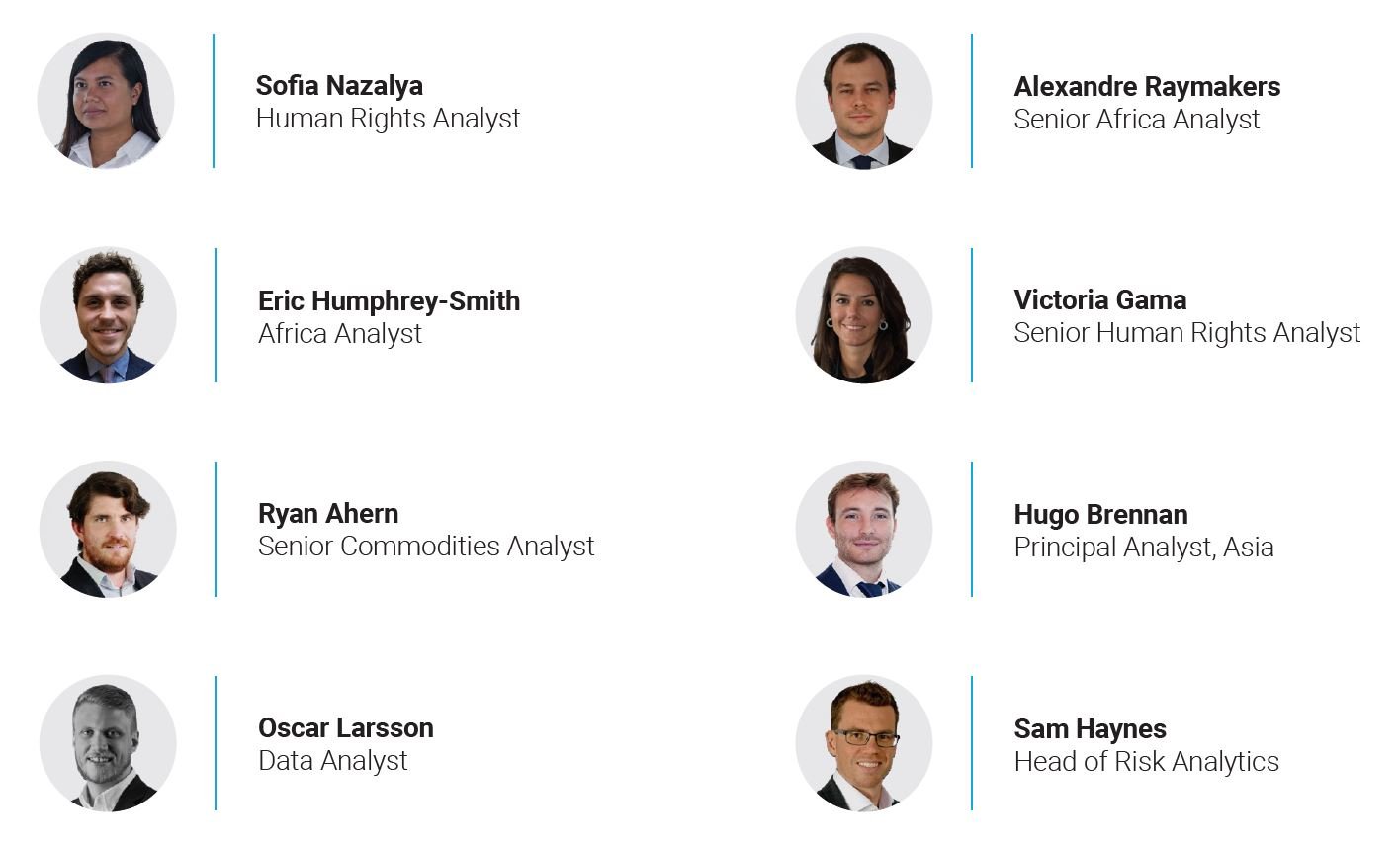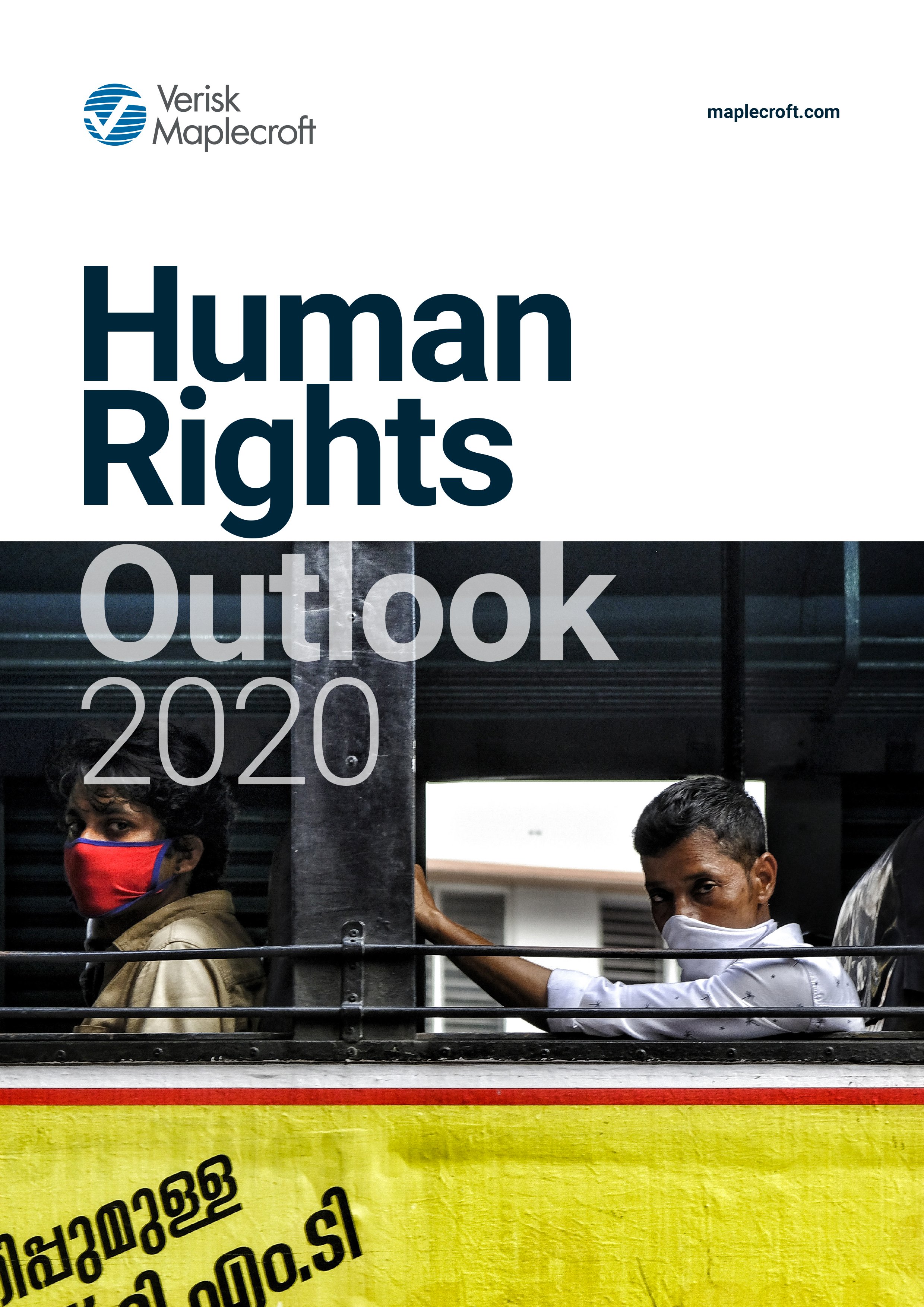2020 has turned the global risk environment on its head. Countries and companies the world over are struggling to come to terms with the primary health and economic impacts of the COVID-19 pandemic, but secondary human rights and political risks are starting to emerge and combine to provide a combustible mix of issues in the operations and supply chains of business. Nowhere are we seeing this more than in Asia.
Learn more about human rights due diligence
The human rights imperative
China’s further regression has been a worrying development in the last year. In our 2019 Human Rights Outlook, we highlighted the use of Uighur forced labour in the production of goods and raw materials from Xinjiang that would likely taint Western supply chains. Over recent weeks that’s been borne out. But while human rights across Asia and the developing markets are a major cause for concern, the need to upscale the way we look at these issues closer to home is just as pressing.
Inequalities and discrimination highlighted by movements such as Black Lives Matter and #MeToo show that despite the growing emphasis on addressing human rights issues, even the most progressive countries still have a long way to go. Accountability and working to be a part of the human rights solution, at home and abroad, should now be an imperative for the global business community. This not only makes ethical sense, but as pressure from the investment community and ethical consumers on ESG issues builds, it will also become a commercial necessity.
Contributors

Explore our insights and webinars below as we delve deeper into the current state of human rights in a post COVID-19 world. We will be releasing a new featured insight weekly. If you don't want to wait for us to release them one by one and prefer to read them all now, fill out our form to download the full report today.
HRO Webinars & Insights
-
Modern slavery risks surge in Asia’s manufacturing hubs, pandemic worsens outlook
4th September 2020
More info...View InsightIn this year’s Human Rights Outlook, we start by looking at how modern slavery risks have intensified in the epicentre of global manufacturing. Our latest Modern Slavery Index reveals that the majority of Asia’s manufacturing countries are now at their lowest point in the global ranking since 2017, including China, India, Bangladesh, Cambodia, Indonesia and Vietnam.
We expect these risks to accelerate as millions of newly unemployed workers turn to more exploitative forms of work just to stay afloat. Travel restrictions have also left the ability of companies to carry out audits in their supply chains in disarray, meaning the reputational risks to brands from association with modern slavery are now higher than at any other time over recent years.
-
National security law is ‘game changer’ for multinationals in Hong Kong
10th September 2020
More info...View InsightHuman rights is of course the most burning issue for Hong Kong, where China has recently imposed a draconian new national security law to crush dissent. The risks to multinationals and their employees are manifold as the human rights gap between the territory and the mainland closes.
We see the new legislation as a ‘game changer.’ Rollbacks in the rule of law and civil and political rights now mean companies face the potential for the politicised detention of employees as China targets companies over the actions of their home governments in the deteriorating geopolitical environment. The risk of being caught up in the sanctions crossfire between Beijing and Washington is also rising, while companies could face fines, asset seizures or the revocation of business licences if judged to have threatened national security – a provision designed to ensure global firms toe Beijing’s political line.
-
Demand for hand sanitiser fuelling human rights risks in supply chains
17th September 2020
More info...View InsightOutside of Asia, we turn our attention to commodity supply chains. An unforeseen consequence of the pandemic is the spiralling demand for alcohol-based hand sanitiser, and its key ingredient ethanol, as the chief weapon against the spread of the virus. However, this will likely come at the expense of human rights in the production of sugarcane – used to distil ethanol – and raises the spectre of violations entering corporate supply chains.
Our Commodity Risk Service shows that child labour, forced labour and the destruction of habitats already represent a significant risk in seven of the nine largest sugarcane-producing countries. As result of the surge in demand, labour rights and environmental violations look set to worsen, especially in Brazil, the world’s primary source of the commodity.
-
Toxic brew heightens child labour risks in African tea, coffee, cocoa
24th September 2020
More info...View InsightThe negative impacts of the coronavirus on human rights in the production of soft commodities also extends to Africa. Fluctuating demand and falling prices for coffee, tea and cocoa are creating fertile ground for the increased use of child labour in countries such as Ethiopia, Côte d’Ivoire and Kenya.
Western governments will likely take more punitive action to combat child labour in commodity supply chains as the 2025 SDG deadline approaches. With growing support in the EU for stricter reporting and supply chain tracing, failure by industry stakeholders to take preventive action now will likely result in consequences later on.
-
Asia emerges as world’s surveillance hotspot
1st October 2020
More info...View InsightThe lines between political risk and human rights are also blurring across many of these countries. Asia is now the highest risk region in both our Right to Privacy and Freedom of Opinion and Expression indices. These rights have steadily worsened over the last four years, but we see Asia further cementing itself as the world’s surveillance hotspot as we move beyond the pandemic.
The extreme measures and unchecked powers implemented to combat the current health crisis are likely to be extended and eventually become permanent fixtures of state governance. One of the key dangers lies in governments’ unrestricted access to personal data, which could be used to stymie political opposition, curtail the free speech of populations and monitor foreign nationals, including the employees of multinational organisations.
-
Modern slavery risks surge in Asia’s manufacturing hubs, pandemic worsens outlook
Available on-demand now
Wednesday 16th September 2020 – 07:00 BSTMore info...Register nowAsian manufacturing hubs have seen a significant increase in modern slavery over the last four years and the risk is set to intensify as the economic fallout from the pandemic takes full hold. Asia’s heightened modern slavery risks will present an increasingly complex picture for corporates, especially when it comes to modern slavery or other ESG-related reporting requirements.
-
Child and forced labour risks spike as pandemic upends soft commodity demand
Available on-demand now
Wednesday 30th September 2020 – 15:00 BSTMore info...Register nowThe COVID-19 pandemic has shifted the demand of key soft commodities deepening already existent labour risks across supply chains in the Americas and sub-Saharan Africa. As the pandemic continues to unfold, we expect COVID-19 to create gaps in standard human rights due diligence, as commodity supply chains experience reduced oversight and protections for smallholders. To showcase both sides of this phenomenon, we will present two case studies that reflect the contrasting human rights risks in soft commodity supply chains.
-
Asia emerges as world’s surveillance hotspot and 3 big risks to watch from Hong Kong’s national security law
Available on-demand now
Wednesday 7th October 2020 – 07:00 BSTMore info...Register nowA new national security law in Hong Kong is a ‘game changer’ for human rights in the global financial hub and understanding the risks it poses to multinational companies is an important first step towards better protecting your people, assets and reputation. The prospect of deteriorating respect for human rights is a trend not unique to Hong Kong unfortunately. As a region, Asia faces the most pronounced risk to the rights to privacy and free speech as governments re-deploy tech measures used to stem the coronavirus tide towards keeping their citizens in check.
